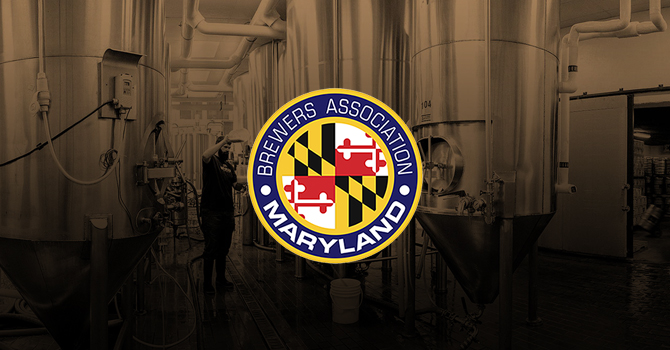
Maryland Senate Committee Supports Franchise Law Reform
Franchise law reform is closer to reality in Maryland without the help of Maryland Comptroller Peter Franchot. The Senate Education, Health and Environmental Affairs Committee voted unanimously last week to loosen the state’s franchise laws that lock brewers into contracts with their wholesalers, according to The Daily Record.
Under the proposed changes, beer companies making fewer than 30,000 barrels annually would be allowed to exit their existing distribution agreements by giving 45 days notice and paying fair market value. Brewers making 12,500 barrels or less would be required to pay fair market value for the product remaining in a wholesaler’s warehouse, while companies making between 12,500 and 30,000 barrels would be required to pay the fee as well as the wholesaler’s marketing costs.
Currently, brewers are required to give 180-days notice and show “good cause.”
Brewers Association of Maryland executive director Kevin Atticks told The Daily Record that the bill is the “transformative change” that craft brewers had been seeking.
Additionally, Maryland’s craft brewers and the state’s Licensed Beverage Association are close to a deal that would raise the cap on direct-to-consumer taproom sales — from 3,000 barrels annually to 5,000 barrels — and lift a provision requiring beer companies to sell and repurchase 1,000 of those barrels from a wholesaler, according to The Daily Record. As a compromise, the state’s brewers would maintain their current taproom hours and agree to a moratorium on seeking further law changes until 2023. The Maryland Legislature would still need to pass those reforms.
Both issues had been championed by Franchot in his “Reform on Tap” legislation. However, that measure never gained traction, as the Legislature refused to consider it. Lawmakers are attempting to strip Franchot of his regulatory powers over the alcohol industry, and the House of Delegates last week passed H.B. 1052, which would place enforcement under the newly created Alcohol and Tobacco Commission.
In an op-ed published in Sunday’s Capital Gazette, Franchot called attempts to take away his office’s regulatory powers “nothing more than political retribution.”

Texas Flow Meter Bill Misses Deadline
The Wholesale Beer Distributors of Texas’ (WBDT) attempt to introduce a bill requiring the state’s craft breweries to install pricey flow meters on their brite tanks appears to have been thwarted — for now.
The Austin Chronicle reported that the WBDT — which refused to endorse a “stakeholder agreement” between the Texas Craft Brewers Guild and distributor lobbying group the Beer Alliance of Texas that would allow manufacturing breweries to begin selling beer to-go from their taprooms — had planned to file the bill prior to last Friday’s deadline. The bill would have required that beer makers install so-called flow meters to ensure they are properly reporting and paying excise taxes. However, brewers already report those numbers to the Alcohol and Tobacco Tax and Trade Bureau (TTB) through “Tax Determination Tanks.”
Although that bill didn’t get submitted, another bill was introduced to close a loophole exempting brewpubs from filing sales and use tax reports with Texas’ comptroller’s office. That bill, House Bill 4542, could wind up being used to revive the flow meter bill prior to the end of the session on May 27, Austin Beerworks co-founder Adam DeBower told Brewbound.
In a statement to Brewbound, the Texas Craft Brewers Guild said it will “remain vigilant in case” the bill is resurrected as a committee substitute or amendment.

Connecticut Brewers Seek To-Go Sales Increase
Connecticut lawmakers are considering an increase to the 9-liter-a-day, per-person limit (or one case of 12 oz. cans) on to-go sales. The proposal would allow for the direct sale of 23 liters (more than two cases), according to the Hartford Courant.
In testimony before lawmakers, Connecticut Craft Brewers Guild executive director Phil Pappas said increasing to-go sales limits and extending the existing excise tax exemption on beer sold directly to consumers would help grow the state’s brewing industry, which ranks 48th in direct-to-consumer sales.
“Our Connecticut breweries lose sales, and the state of Connecticut lose taxes, every single day due to this low limit because we are forced to tell our customers they legally can’t buy more,” he said.
According to Hartford Business, Connecticut Gov. Ned Lamont has also proposed slashing the state’s alcohol excise tax in half as part of his $43 million budget plan. Currently, breweries pay $7.20 per barrel, but Lamont’s proposal would reduce it to $3.60 per barrel.

Utah Full-Strength Beer Bill Dead
A Utah House committee last week rejected a bill to increase the alcohol by weight of beer sold in grocery and convenience stores from 3.2 percent to 4.8 percent, the Desert News reported. The committee instead supported a substitute bill to study the issue.
“The substitute is basically the land of no decision,” Sen. Jerry Stevenson (R-Layton), Senate Bill 132 sponsor, told the outlet. His measure ran into opposition from the Church of Jesus Christ of Latter-Day Saints.
Nevertheless, the issue could wind up on the 2020 ballot, with support from retailers such as Walmart.
West Virginia Legislature Passes Higher ABV Bill
West Virginia lawmakers paved the way for Gov. Jim Justice to increase the alcohol by volume limit on beer sold in the state from 12 percent to 15 percent, The Charleston Gazette-Mail reported.
In addition to increasing the ABV cap, Senate Bill 529 would also allow craft brewers to give a 1 oz. sample to customers and apply for one-day permits to sell beer at charitable events, West Virginia Public Broadcasting reported.
Tennessee Self-Distribution Law Fails
A bill that would have allowed Tennessee beer manufacturers to self-distribute within a 100-mile radius of their brewery failed in the Senate State and Local Government Committee.
Senate Bill 0217 would have applied to small beer companies making 50,000 gallons or fewer. Tennessee currently allows beer companies to self-distribute in the county in which they operate, the Nashville Post reported.